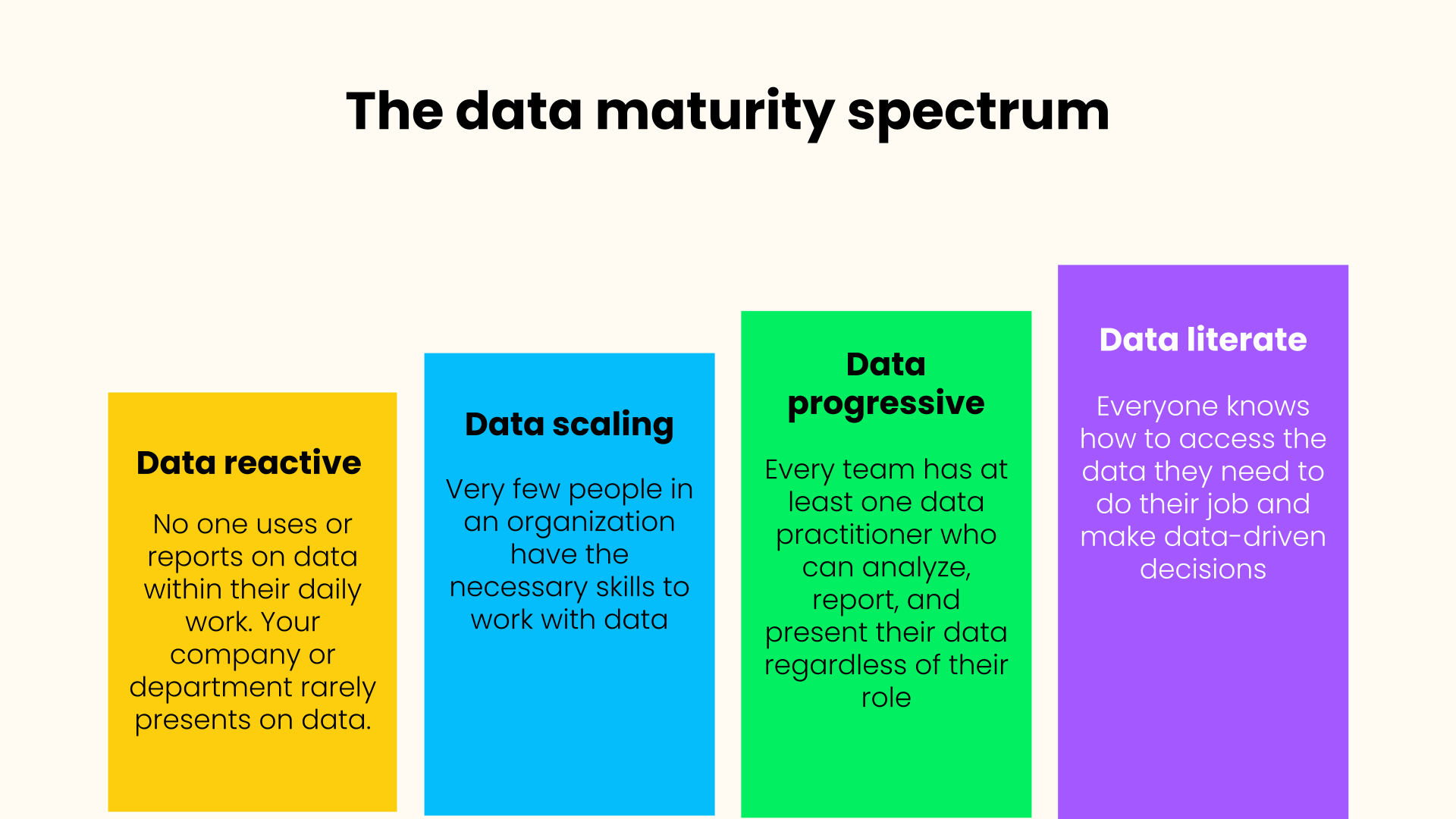Assessment
The DataCamp Data Maturity Assessment
Becoming a data-mature organization is more than a technology investment; it’s a multi-faceted mission that touches all corners of your business. Uncover your organization or team’s data maturity.
- 26 questions
- 10 minutes
What is the Data Maturity Assessment?
- Designed for anyone involved in data—whether you are a data practitioner, data leader, or learning leader
- Based on our IPTOP framework: Infrastructure, People, Tools, Organization and Processes
- Your organization is ranked based on four maturity stages: Data Reactive, Data Scaling, Data Progressive, and Data Literate
- The assessment now includes generative AI and how your organization is addressing it

The importance of data maturity
Now more than ever, organizations with the tools, processes, and culture to leverage an expanding amount of data hold a competitive advantage over those without. Data-mature organizations are naturally placed to harness AI to drive innovation and productivity and gain more value from their data.
of leaders recognize data literacy as the most important skill behind basic computer skills — DataCamp
of chief data officers blame a lack of data culture as the main reason they are not data-driven — New Vantage Partners
of leaders agree that employees equipped with data literacy skills outperformed those without the same fundamental skills — DataCamp
Drive your data maturity with the IPTOP Framework
There are five key pillars to consider when moving through the data maturity stages, each represented through our IPTOP framework:
- Infrastructure: How data is collected, made discoverable, and actionable throughout the organization
- People: Forging a data culture where everyone values data and AI and continuous learning
- Tools: The tools uses across all skill levels to improve work with data and AI
- Organization: How data and AI talent are organized to promote better data science
- Processes: The workflows data and AI teams adopt to drive collaboration and business objectives

Further data & AI maturity resources
Dive into the world of data maturity and how to grow across the data maturity spectrum.
In DataFramed, Games Kesari, Co-Founder and Chief Decision Scientist at Gramener, outlines scaling your organization’s data maturity.
Learn why investing in your people is your most significant to improve your data maturity.